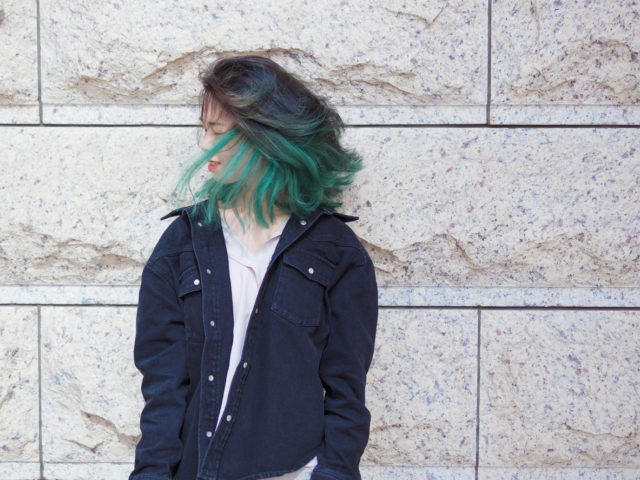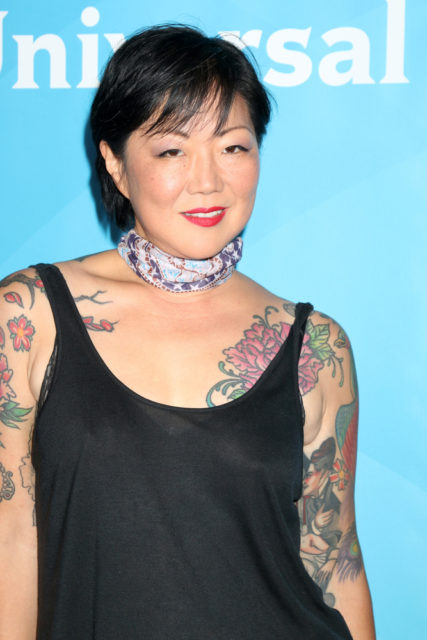
When I was a tween, I saw Margaret Cho on TV, and my parents told me she was “gay.” It was a typical Saturday night. We were gathered in front of our television. My memory of what we were watching, or why Margaret Cho came up, is hazy, but I remember my parents mentioning her sexuality very clearly. Another Korean woman, who identified as queer — this was so new, and so foreign to me.
Back then, I still lived in China (we moved there from Korea for my dad’s work), and this was one of the first times I was exposed to a queer woman of color. She was familiar, but also unfamiliar. She reminded me of my cousins who immigrated to the US. She looked Korean, but what my parents had to say about her contradicted what I mostly understood to be Korean-ness, as taught by my parents and what was the norm at the time. They spoke about her queerness the way they spoke about tattoos (which she also happened to have and, of course, my parents had distaste for that as well). And while I felt an alien sense of kinship with her immediately, that turned to shame when my parents started discussing how her skits were too vulgar, how she’s too Americanized, and how her queerness, somehow, made her less Korean.
See, just as Korean people aren’t supposed to have any tattoos, Korean people aren’t allowed to be queer — not in my parents’ eyes. And despite the fact that LGBTQ people exist all over the world (yes, even in Korea!), it seems that this concept of queerness is often identified as being Western.

I always knew I wasn’t straight, but because of what I remember, because of that distinct conversation about Margaret Cho, I always felt like accepting my queerness made me less Korean, although it’s true that I didn’t grow up in Korea. In fact, most of my childhood was spent at a Western school in China, surrounded by kids from mostly North America and Europe. It’s also true that ever since high school, I’ve lived in Canada, and visited my home country maybe a handful of times. So as much as my parents and other Koreans may not consider me as Korean as, let’s say, someone who has lived their entire life there, I still very much identify as being Korean.
There’s something really weird about being a third-culture kid, and it comes with how others identify you. In Korea, you’re not Korean enough to be identified as being Korean, and in other countries like Canada, you’re not Canadian enough (read: not white enough) to be identified as Canadian. And with that, there comes another set of expectations and stereotypes. Just like in Korea, being Korean in Western societies also means not being queer. Although the Western understanding of “Korean-ness” is vastly different from our own understanding of Korean identity, it seems that they fall into the same trap.
Asian people are supposed to be the “model minority.” We’re supposed to be the unobtrusive immigrants who work hard and keep our heads down. We’re supposed to be as vanilla as it gets (unless we’re being eroticized and objectified by white people). I distinctly remember an instance when I was in high school, when I had moved to Canada for the first time — our yearly report cards came out, and my classmates asked what I had gotten. When they looked at my above-average grades, one of my classmates said, “Of course, because you’re Asian.”
That’s not the only time I’ve experienced such treatment. At work, I sometimes hear the upper level managers mentioning how “Asians work so hard.”
Many encounters I’ve had as a teenager and young adult focused on objectifying me because of my race. I distinctly recall being told how much of a “proper” Asian I was for having the manners to pour my date some tea. I’ve had numerous men yell at me, “Konnichiwa,” despite my not being Japanese. I’ve even had men say, “I’d like to try some of that sushi,” in passing. This means that, as an Asian woman, I must be straight because I have to be available exclusively to men.
Always polite, always good, always “normal,” and always straight.
In our heteronormative world, Asians are viewed as being a “straight” race. While our men are considered straight, they are emasculated, rendered nonthreatening by the portrayals in Western media. When was the last time anyone saw an Asian man being a romantic interest before The Walking Dead? And when it comes to being a woman, we’re supposed to be obedient, and available to men (especially white men) and their male gaze.
Because of these stereotypes, for a long time, I questioned whether what I was feeling was real.
But not anymore. I know I am queer.
While my parents (and the rest of my family) might not be ready to hear that I’m queer, I’m finally at a point where I feel comfortable with admitting this about myself. I know my existence confirms that, just like Margaret, I am both queer and Korean — and, most of all, proud.

What Do You Think?